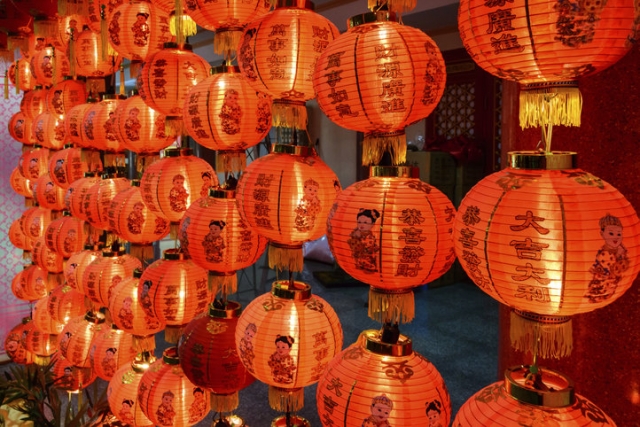
Introduction
The Lunar New Year, celebrated in China and many other Asian countries such as Vietnam, Thailand, South Korea, Singapore and Cambodia, takes place on a different date each year. In this lesson children learn about Lunar New Year customs. They are introduced to some expressions for speculating at the beginning of the lesson that will be practised in context when they play a board game in small groups. The game will encourage players to read and speculate about customs in a fun way.
Learning outcomes
- Use language to speculate
- Give some facts about Lunar New Year
- Take turns, reach an agreement with a partner and respect the rules of a game
Age and level
9-12, 13-17 (A2+)
Time
45-50 minutes
Materials
The lesson plan, board, question cards, answers and rules can be downloaded in PDF format below. In addition, you will need dice (one per group) and counters (one per pair of players).
- Before the lesson
Download and make copies of the board game, question cards, rules and answer sheets you need for the lesson. Cut the questions cards into 50 separate cards.
- Warmer (5 minutes)
- Tell the class that they are going to learn about a festival in this lesson. Give some clues until they guess, for example:
o The festival is usually in January or February.
o It begins with the first new moon of the lunar calendar.
o It can last until the first full moon (15 days later).
o People celebrate it in many countries around the world, e.g. China, Vietnam, Taiwan, Thailand, Singapore, Malaysia, Indonesia, Brunei, Philippines, Myanmar, Cambodia, Laos, North and South Korea.
o Chinese people usually call it ‘Spring Festival’. - Write the name ‘Lunar New Year’ on the board and ask a few learners to say what they know about it, or if they celebrate the festival, what they like about it.
Note: Some people refer to the festival as ‘Chinese New Year’. We can use the term ‘Lunar New Year’ to include all new year celebrations based on the lunar calendar.
- Tell the class that they are going to learn about a festival in this lesson. Give some clues until they guess, for example:
- Practising language for speculating (10 minutes)
- Tell learners that they will play a board game about Lunar New Year in this lesson. During the game, they will ask and answer questions. Before they play, they can practise phrases they will use.
- Write this gapped sentence on the board:
Around __________% of the world’s population celebrate Lunar New Year. - Ask learners to work in pairs to guess the percentage. As they guess, write these expressions on the board:
I think it’s 10%. I disagree. I think …
Maybe it’s 50%. I think you’re right/wrong.
Could it be 90%? Yes, it could be! - Ask a pair what they think the percentage is. They should use one of the expressions on the board to give their guess.
- Ask another pair to respond using one of the expressions on the board. If they don’t agree, ask them to give their guess. If they agree, ask another pair to give their guess.
- Continue asking pairs until one guesses correctly (answer: around 25%, i.e. 2 billion people). Remind the class that Lunar New Year is celebrated in many countries around the world, especially Asia.
- Playing a board game (20-30 minutes)
- Put learners into groups of 5 or 7 learners. For each group, appoint a captain and put the remaining players in the group into pairs (i.e. 2 or 3 pairs). This will encourage the use of speculating language as they discuss the ideas.
- Give each group a ‘Dragons & Scrolls’ game board; counters and a die; a set of ‘Dragons & Scrolls’ question cards (upside-down) and the ‘Dragons & Scrolls’ game rules.
- Give each captain a copy of the ‘Dragons & Scrolls’ answers.
- Give learners five minutes to read the rules and make sure they all understand how to play. Ask a few questions to check:
o What does the captain do?
o Where do you put your counters?
o What do you do if your answer is correct / incorrect?
o What do you do if you land at the bottom of a scroll / top of a dragon? - If necessary, ask a group to demonstrate the game for a minute or two to make sure everyone understands.
- Monitor while learners play the game, helping where necessary and encouraging learners to use English as much as possible. Remind them to use some of the expressions on the board.
- If groups finish early, they can look at unanswered questions in the pile and try to guess the answers.
- Closing lesson / homework (5 minutes)
- Ask learners if they were surprised by any of the information they learned about Lunar New Year.
- For homework, learners write about how they celebrate New Year (Lunar or otherwise). They can write this in the form of a letter / email to an imaginary friend, or a diary entry.
I am excited to try this with my high school ELL class. I have one student from China and this will give him a good opportunity to share more information. It will also lead into a project where all of my students will do slideshows about New Year's and other celebrations unique to their countries. Thank you!